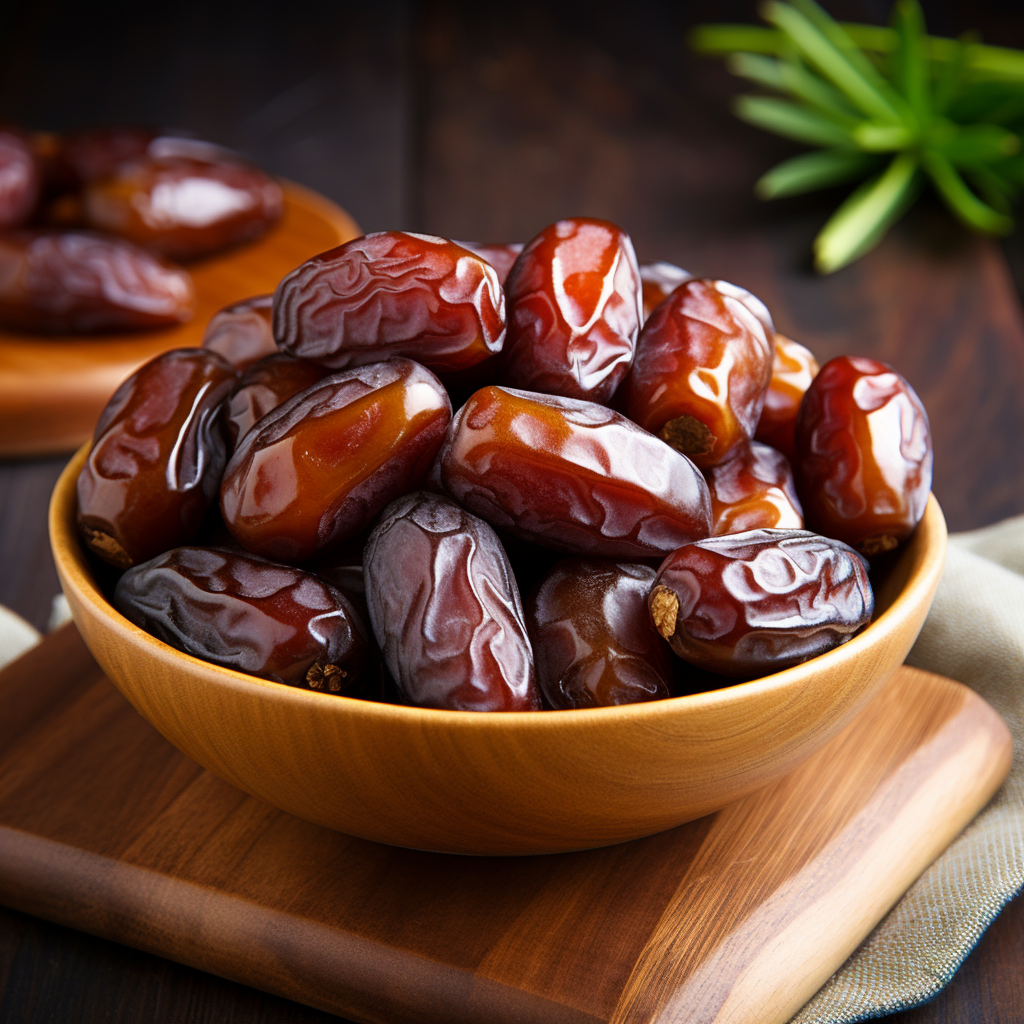The nutritional profile of dates
Dates are a delicious fruit that offers a range of nutritional benefits. They contain essential nutrients such as fibre, potassium, magnesium, and vitamin B6. In addition, dates are naturally low in fat and cholesterol-free, making them a healthy choice for those seeking carefully balanced nutrition.
Fibre is an essential component of our diet; dates contain a significant amount. This dietary fibre aids digestion and can help prevent constipation. Potassium is another essential nutrient found in dates, which plays a vital role in maintaining proper heart health and regulating blood pressure.
Additionally, dates provide magnesium, which supports healthy bone development and helps the body convert food into energy. The vitamin B6 content of dates is essential for brain function and the production of red blood cells.
The nutritional profile of dates makes them an excellent addition to a well-rounded diet that promotes overall health and wellness.
How many calories are in dates?
Dates are known for their sweet taste and chewy texture, but how many calories do they contain? A date weighing around 24 grams typically contains approximately 66 calories. This makes dates a relatively low-calorie snack that can easily fit into a balanced diet.
While dates may be higher in calories compared to some other fruits, it’s important to note that these calories are derived from naturally occurring sugars and fiber, which can affect the body differently than processed sugar. The fibre content in dates helps slow down the absorption of sugars, providing a more sustained release of energy.
As with any food, moderation is key when consuming dates to ensure they fit within your overall daily calorie intake. Pairing dates with protein or healthy fats can also help create a more satiating snack or meal option. Incorporating dates into a well-balanced diet can provide a nutritious and tasty addition without compromising your calorie goals.
What is the Impact of calories on the body?
The impact of calories on the body is crucial to understanding how they play a role in our overall health and well-being. Calories serve as a measure of energy that our bodies need to function correctly. When we consume more calories than we burn, the excess energy is stored as fat, potentially leading to weight gain and an increased risk of chronic diseases.
On the other hand, when we consume fewer calories than we burn, our bodies start using stored fat for energy, promoting weight loss. However, it’s important to note that not all calories are created equal. The sources from which we obtain our calories can significantly impact our overall health. Dates, for example, may contain sugar and fibre-derived calories, but their nutritional benefits make them a healthier choice than processed sugars.
Balancing calorie intake with physical activity is essential for maintaining a healthy weight and ensuring proper nutrition. Incorporating nutrient-dense foods like dates into a well-rounded diet can help provide essential vitamins, minerals, and fibre while keeping calorie intake in check.
How to incorporate dates into your diet
Dates can be a delicious and nutritious addition to your diet. Here are some ways you can incorporate dates into your meals and snacks:
- Snack on them: Dates can be a sweet and satisfying snack. Grab a handful of dates for a quick energy boost.
- Add them to smoothies: Blend dates with your favourite fruits and vegetables to add natural sweetness to your smoothies. This is a great way to enhance your beverages’ flavour and nutrient content.
- Use them in baked goods: Dates can be used as a natural sweetener in baked goods like cookies, bars, and muffins. Replace sugar or syrup with finely chopped dates for added fibre and nutrients.
- Stuff them with nut butter: For a tasty and healthy treat, remove the pit from a date and fill it with your favourite nut butter. This combination provides both a creamy texture and a nutty flavour.
- Mix them into salads: Chop dates into small pieces and mix them into your salads for a burst of sweetness among the greens. They pair well with nuts, seeds, cheeses, and vinaigrettes.
By incorporating dates into your diet, you can enjoy their rich flavour while benefiting from their nutritional value. Experiment with different ways to enjoy dates and discover which methods you prefer.

No responses yet